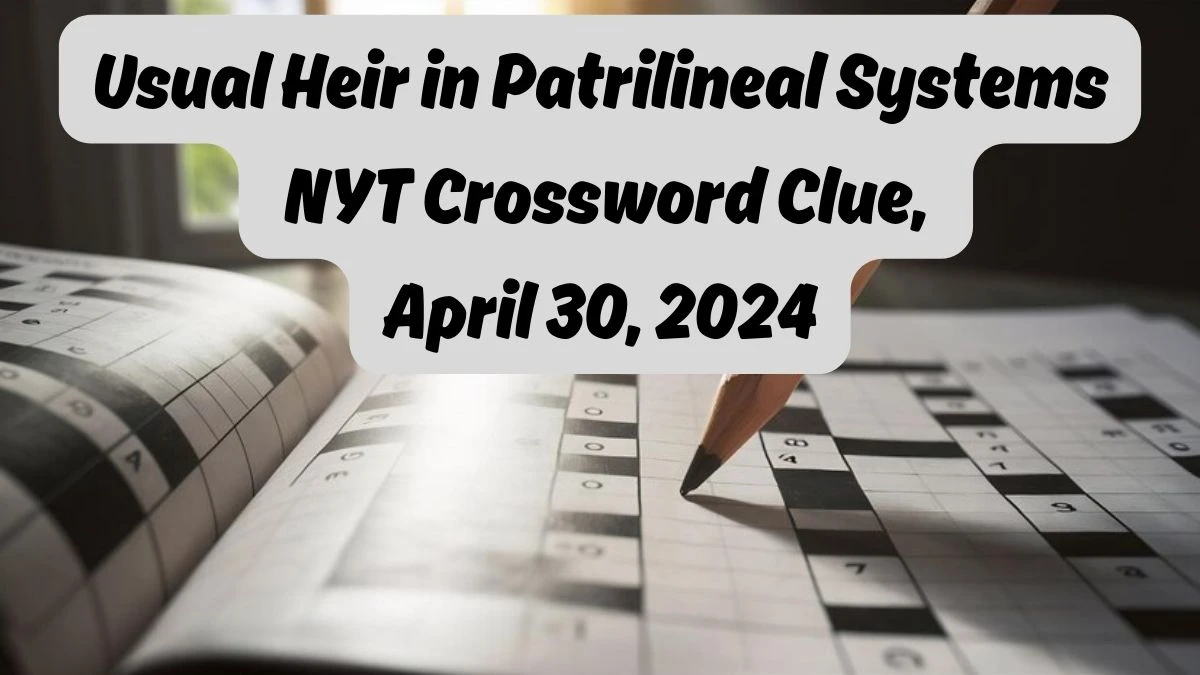Usual Heir in Patrilineal Systems NYT Crossword Clue, April 30, 2024
by
Updated Apr 30, 2024

The New York Times crossword is a puzzle game published daily in The New York Times and available on their website, in other newspapers, and on mobile apps. Solving these crossword puzzles can help improve mental functions.
Studies have also found that solving crossword puzzles regularly can boost your focus on tasks and enhance your working memory and decision-making abilities.
Some clues are easy, and you can solve them yourself, but some are hard, and you need to search the internet or negative websites that explain each crossword clue answer. That's why we are here. Let's look at today's clue.
Clue
Before guessing an answer, you need to first understand the given clue and its definition. Split the given clue and know its synonyms and definitions.
Sometimes you get direct clues, and sometimes you may not get a direct clue for your answer. If you are stuck on this clue in a crossword puzzle, we can help you find the answer.
Today's NYT crossword clue is "Usual heir in patrilineal systems"
An "heir" is someone who gets the property or belongings of a person who died without a will. But in everyday language, we often use "heir" to talk about anyone who inherits property, whether it's from a will or not.
A patrilineal system is a social or cultural structure where family descent, inheritance of property, and social status are primarily traced through the father's line. This means that family rights and responsibilities are passed down from father to son. In patrilineal societies, the family name and property are often inherited by the son.
The clue is asking to identify the person who usually inherits property and family lineage in societies where descent and inheritance follow the father's line.
Hints
- The answer is an adjective.
- It describes a male member of a family.
- It refers to the first-born child.
Answer
ELDESTSON.
Explanation
In patrilineal systems, the "usual heir" refers to the eldest son. This means that when a person dies and leaves behind property, the eldest son is typically the one who inherits these belongings and responsibilities.
This tradition is based on the practice of tracing family lineage and passing down inheritance through the male line, giving priority to the eldest son in continuing the family legacy and maintaining ancestral assets.
The New York Times Crossword is like a puzzle game printed in The New York Times newspaper. It's not an ordinary puzzle; it's known for being tricky and clever. Each day, a new crossword is published, getting harder as the week goes on.
Monday's puzzle is the easiest, while Saturday's is the toughest. People who love puzzles really enjoy the challenge and variety that the New York Times Crossword offers.